EVENT RECAP: Kick-off Workshop on “National Electric Vehicle Roadmap Development"
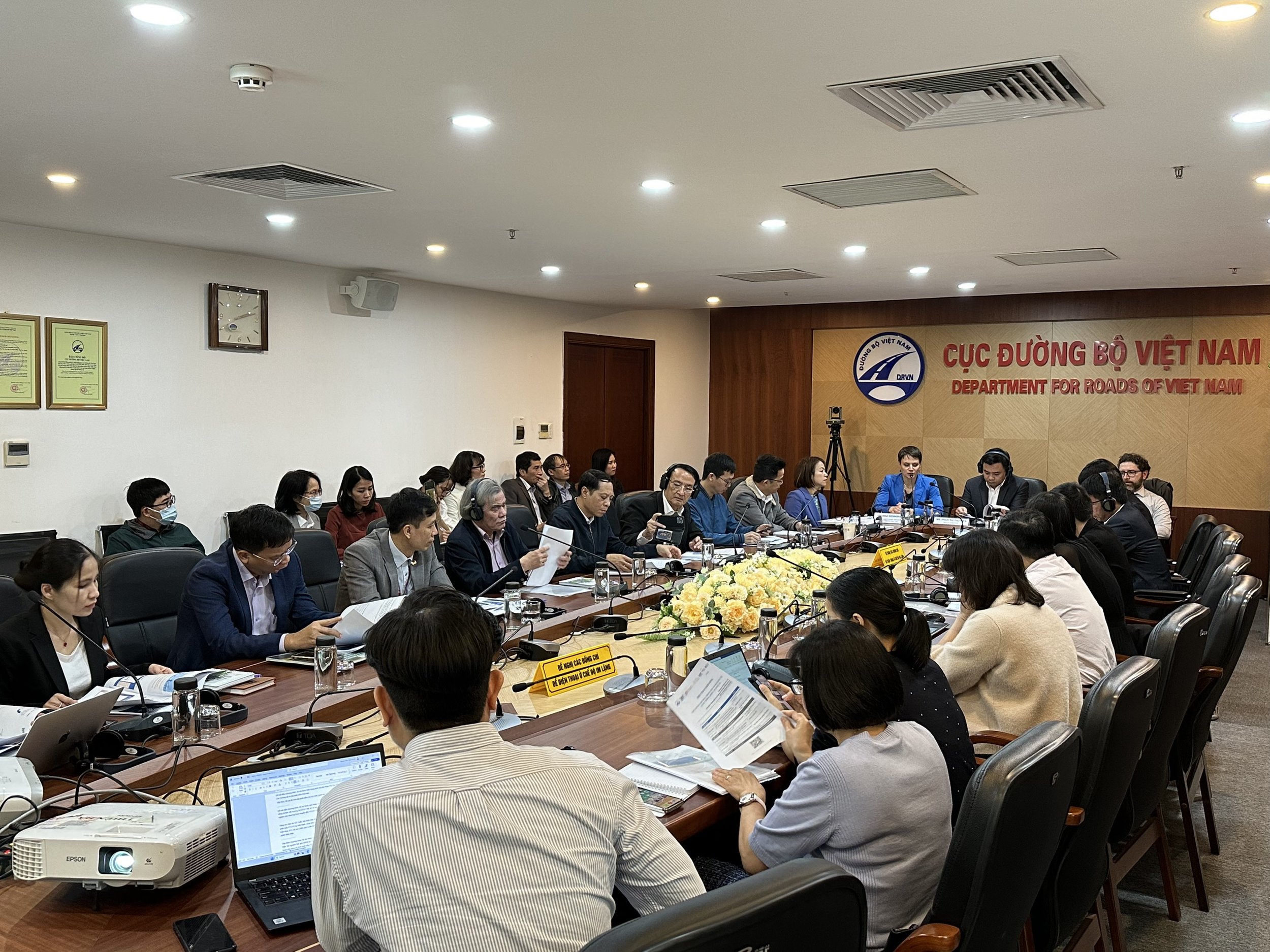
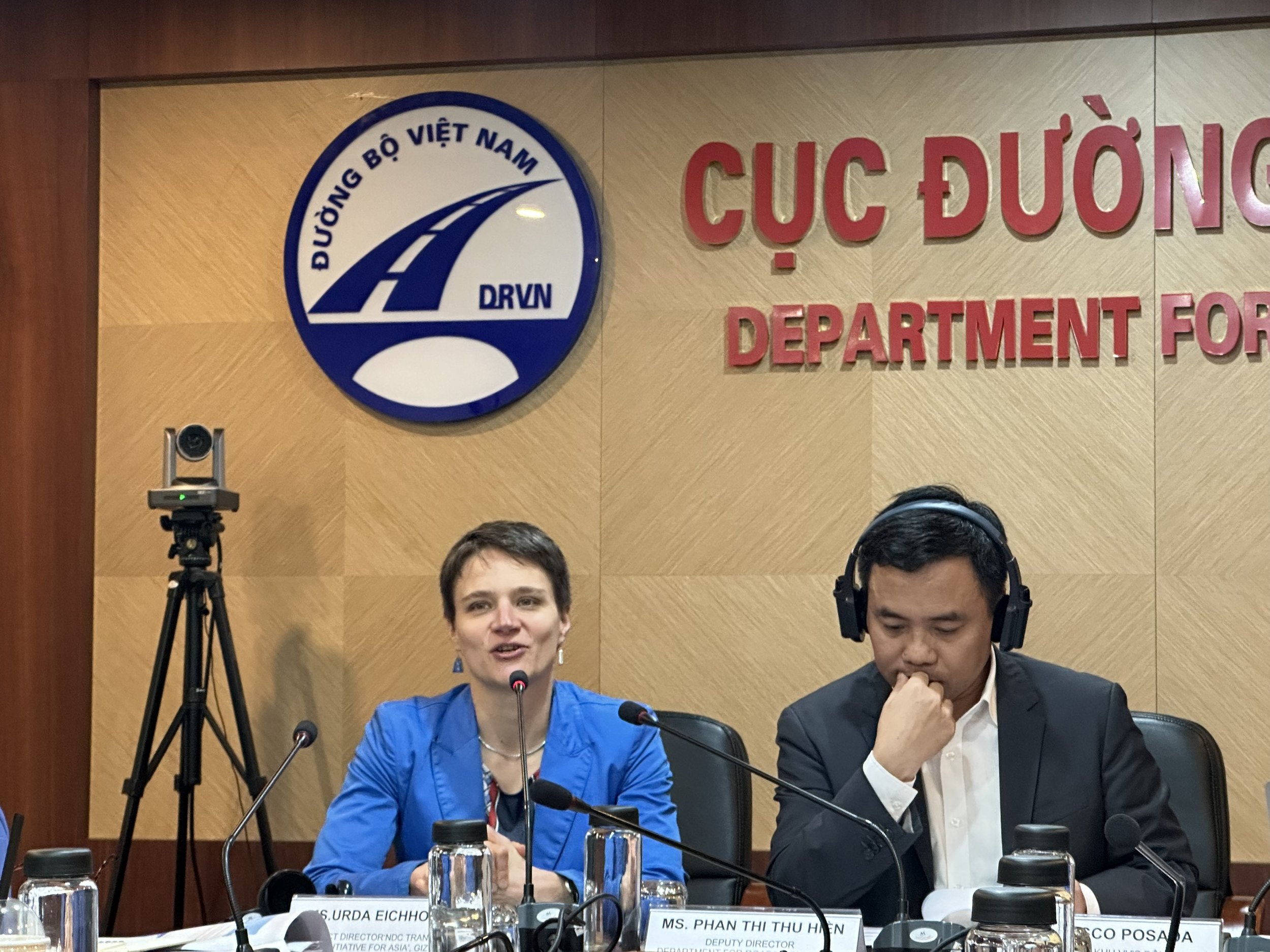
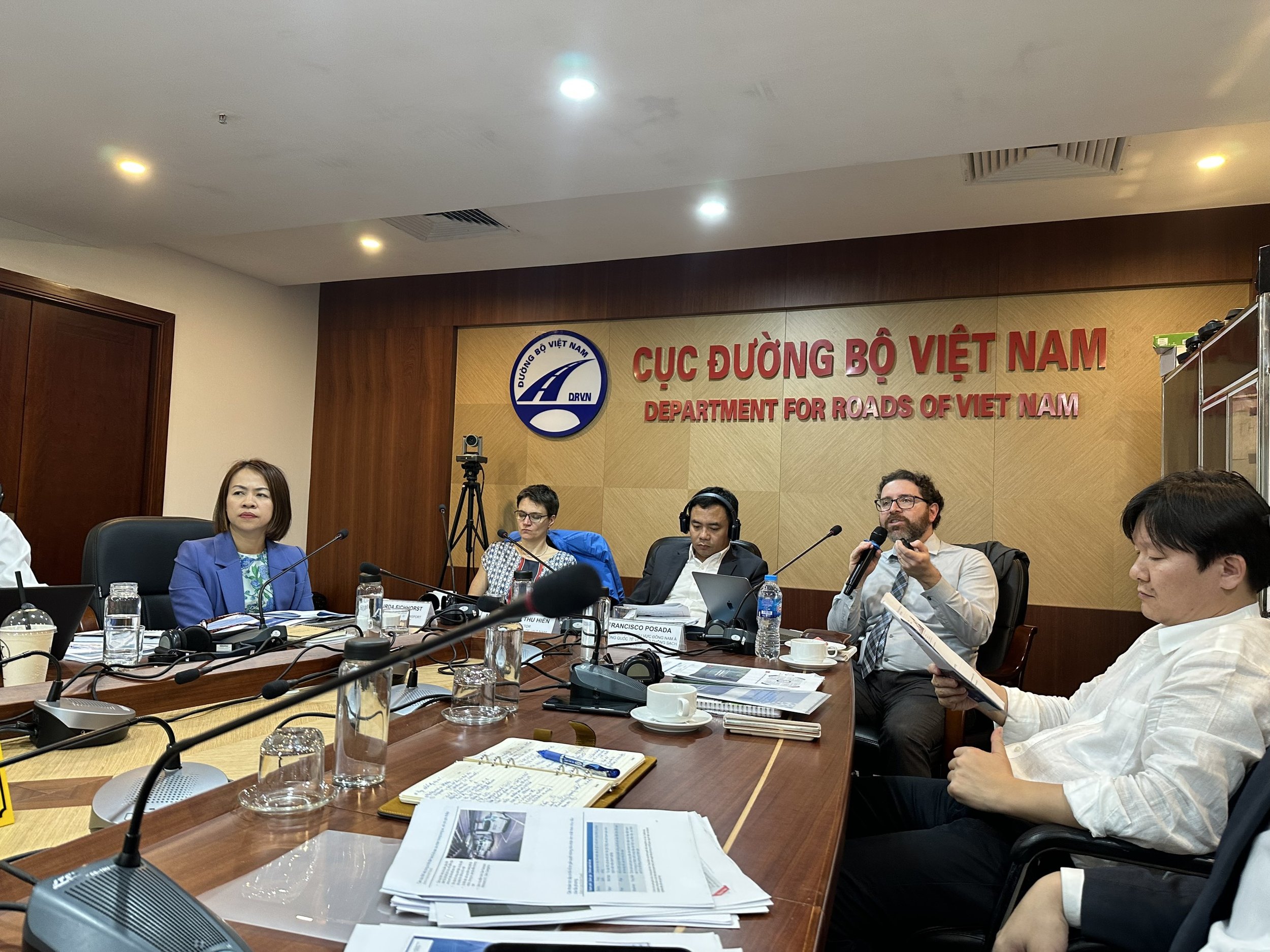
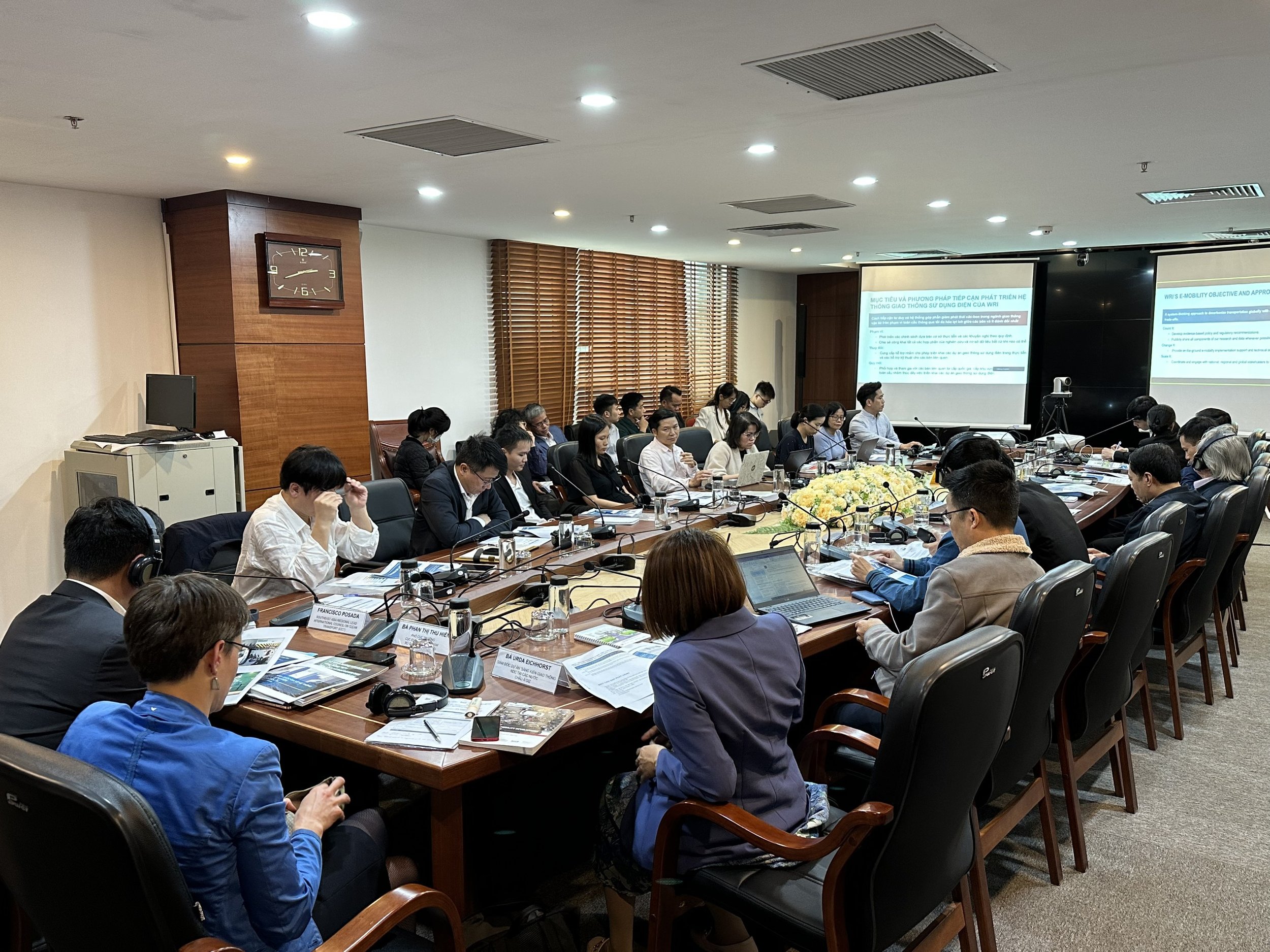
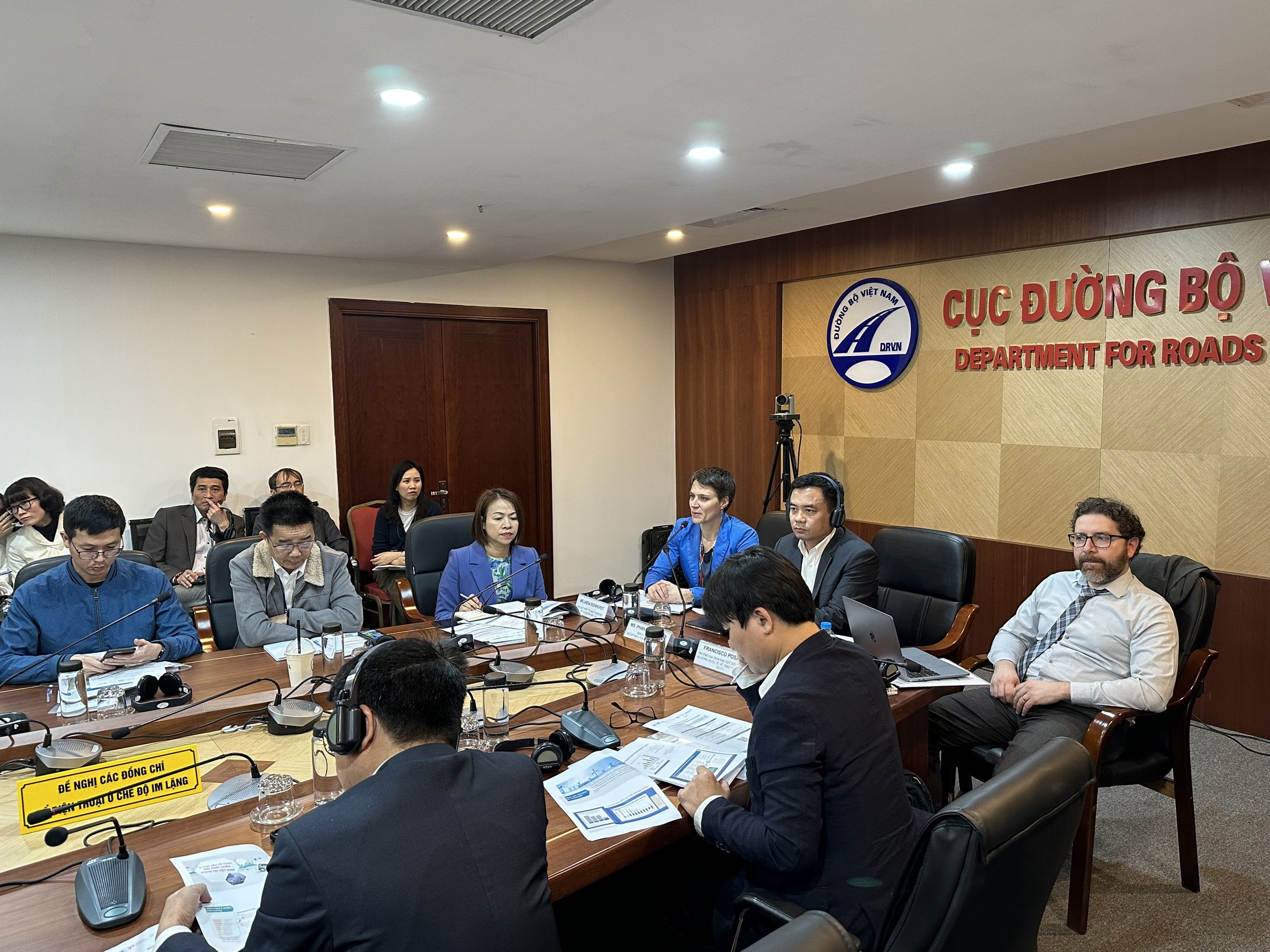
Hanoi, 31st March 2023, Viet Nam’s efforts to accelerate “Net-zero emission” were boosted today with a kick-off workshop on “National electric vehicle roadmap development”, which was co-organised by the Department for Roads of Viet Nam (DRVN), Ministry of Transport together with Deutsche Gesellschaft für Internationale Zusammenarbeit (GIZ) GmbH, World Resources Institute (WRI) and International Council on Clean Transportation (ICCT). The workshop is within the framework of the project "Transport Initiative in Nationally Determined Contribution for Asia" (NDC-TIA). Attending the workshop were key officials from the Ministry of Transport, relevant units/agencies as well as leading experts from WRI, ICCT, and GIZ.
The training workshop outlined two main key objectives including:
Sharing the international practices and lessons learnt in roadmap development for electric mobility (e-mobility) as well as charging infrastructure planning and financial mechanism assessment for the e-mobility transition, and
Presenting a research framework for national e-mobility transition roadmap.
Due to its heavy reliance on fossil fuels, Viet Nam's transport sector is now one of the country's top emitters of greenhouse gases. In this context, the Government of Viet Nam approved the Decision No. 876/QĐ-TTg dated 22nd July 2022 on “Action Plan for green energy transition and reduction of carbon dioxide and methane emissions of transport sector" with the goal of a green transport system development, towards net-zero emission goal by 2050, including the specific goal of rational development of transport modes, transition all vehicles, transport infrastructure with the use of electricity and green energy.
Mr Do Cong Thuy, Deputy Chief of Division of Transport, Vehicles and Drivers management, DRVN stated:
“The development of electric transport, the use of electricity, renewable energy sources and green energy are trends that countries around the world, as well as Viet Nam, are currently implementing’. He hoped that this kick-off workshop would be an opportunity for the Department and the research team to listen to stakeholders share and discuss issues of concern, challenges, and international experiences in e-mobility roadmap development.”
Speaking at the workshop, Ms Urda Eichhorst, Director of NDC-TIA project, GIZ emphasised:
“Electric mobility is truly a critical measure for the transition to zero carbon transport, not only in Viet Nam.”
She also pointed out that electric vehicles are seen as a promising technology and an alluring solution for low-carbon transport as well as tackling the rising negative impacts of the transport sector and mitigating climate change.
Department for Roads of Viet Nam, Ministry of Transport highly appreciated the support of NDC-TIA project in e-mobility roadmap development, especially the co-organisation of the kick-off workshop today and expected that Viet Nam’s vision of transport decarbonisation would be furthered by the practical contributions and initiatives made via the kick-off workshop today.
This training program lies under the framework of the NDC-TIA project, Viet Nam component.
Author: Hang Nguyen
